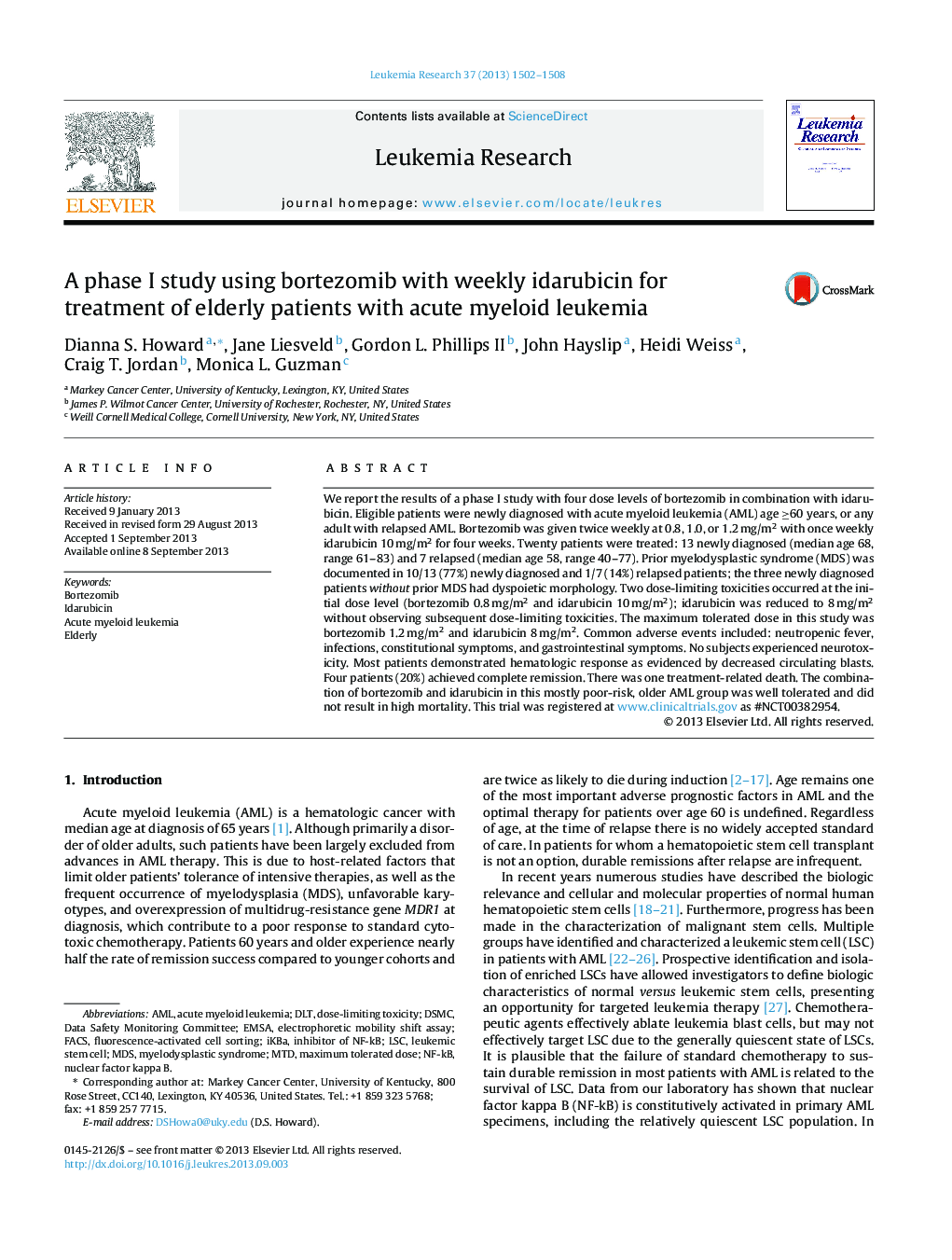| Article ID | Journal | Published Year | Pages | File Type |
|---|---|---|---|---|
| 10908899 | Leukemia Research | 2013 | 7 Pages |
Abstract
We report the results of a phase I study with four dose levels of bortezomib in combination with idarubicin. Eligible patients were newly diagnosed with acute myeloid leukemia (AML) age â¥60 years, or any adult with relapsed AML. Bortezomib was given twice weekly at 0.8, 1.0, or 1.2 mg/m2 with once weekly idarubicin 10 mg/m2 for four weeks. Twenty patients were treated: 13 newly diagnosed (median age 68, range 61-83) and 7 relapsed (median age 58, range 40-77). Prior myelodysplastic syndrome (MDS) was documented in 10/13 (77%) newly diagnosed and 1/7 (14%) relapsed patients; the three newly diagnosed patients without prior MDS had dyspoietic morphology. Two dose-limiting toxicities occurred at the initial dose level (bortezomib 0.8 mg/m2 and idarubicin 10 mg/m2); idarubicin was reduced to 8 mg/m2 without observing subsequent dose-limiting toxicities. The maximum tolerated dose in this study was bortezomib 1.2 mg/m2 and idarubicin 8 mg/m2. Common adverse events included: neutropenic fever, infections, constitutional symptoms, and gastrointestinal symptoms. No subjects experienced neurotoxicity. Most patients demonstrated hematologic response as evidenced by decreased circulating blasts. Four patients (20%) achieved complete remission. There was one treatment-related death. The combination of bortezomib and idarubicin in this mostly poor-risk, older AML group was well tolerated and did not result in high mortality. This trial was registered at www.clinicaltrials.gov as #NCT00382954.
Keywords
Related Topics
Life Sciences
Biochemistry, Genetics and Molecular Biology
Cancer Research
Authors
Dianna S. Howard, Jane Liesveld, Gordon L. II, John Hayslip, Heidi Weiss, Craig T. Jordan, Monica L. Guzman,
